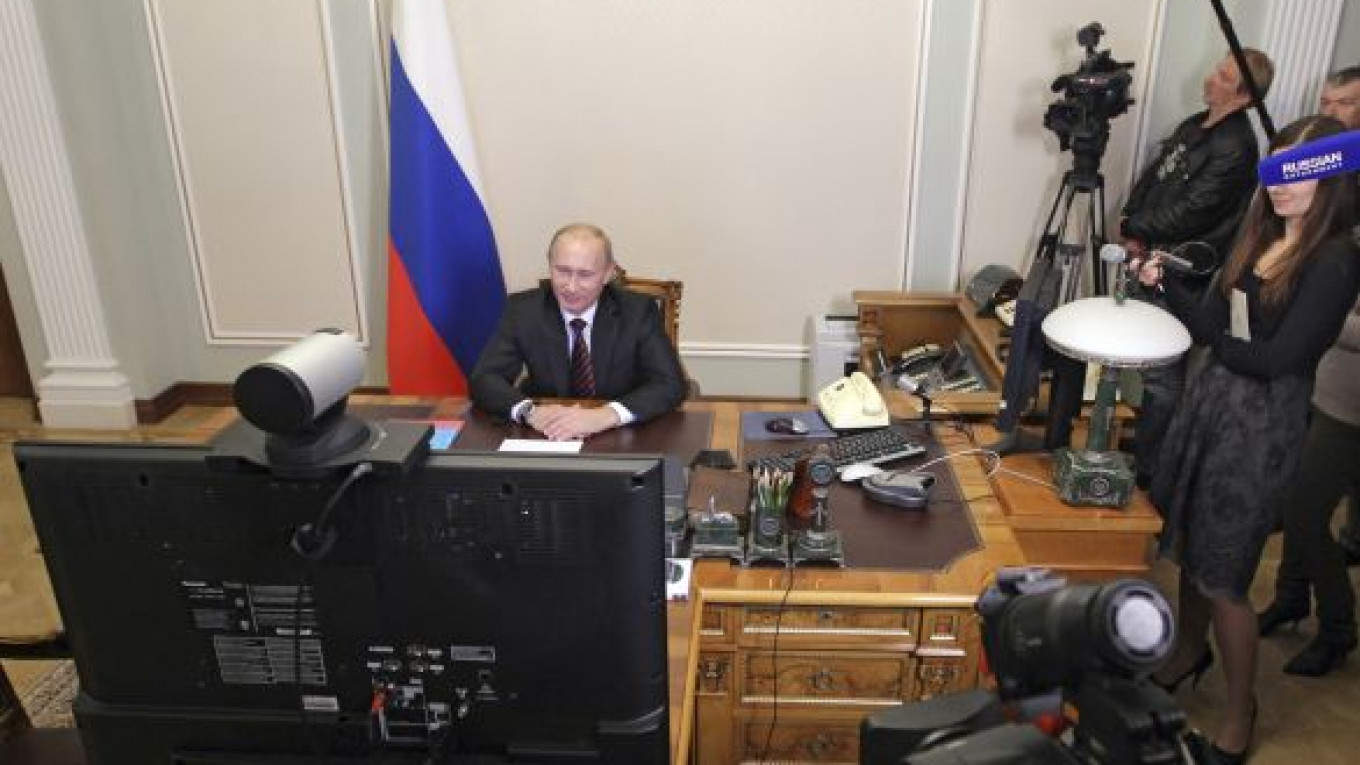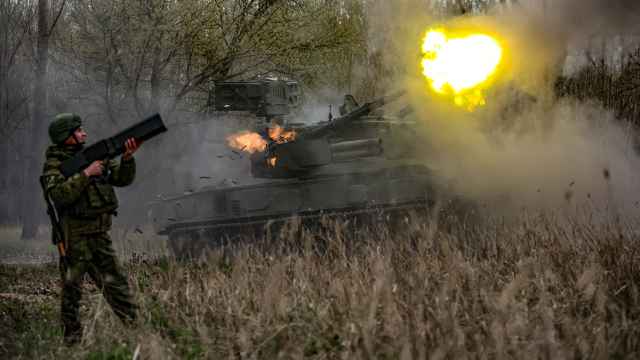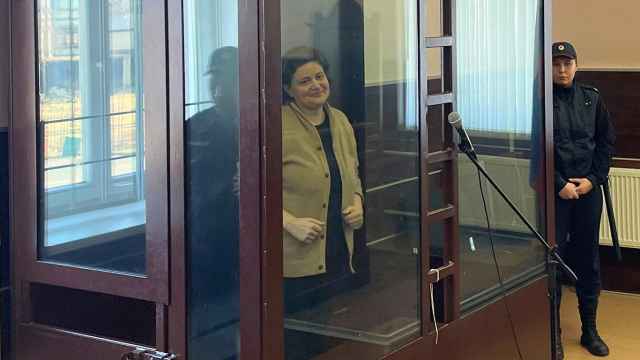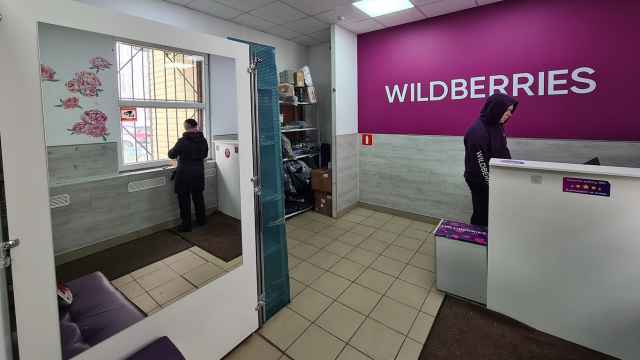Prime Minister Vladimir Putin held a videoconference in the early hours of Friday morning to congratulate Transportation Minister Igor Levitin and a group of workers on the completion of the Amur highway.
The prime minister, calling from his home office at 1:00 a.m. to speak with his audience at 8 a.m. local time in Khabarovsk, discussed the further development of the highway with Levitin, then watched as Oleg Trushin, a heavy machinery operator who worked on the highway, was presented with the keys to the Lada Kalina car that served as backup when the prime minister made his much publicized four-day journey along the highway in late August.
"The highway will be the start of a new era of development of the regions of Siberia and the Far East," Putin said in a telegram he sent to highway workers. "You have certainly done a good job. You have not only laid thousands of kilometers of roadway, but have successfully dealt with the most complex engineering and technology issues. You have certainly earned great respect and enormous praise."
The highway runs between the southeastern cities of Chita and Khabarovsk, a distance of 2,097 kilometers. It is the last link in a road system that stretches from Murmansk, north of the Arctic Circle on the Barents Sea, and Kaliningrad, on the border with Poland, to Vladivostok, on the Pacific Ocean.
"It is a huge accomplishment," Putin's spokesman Dmitry Peskov said. "All points in the farthest extremes of the country are now connected."
Construction of the highway cost 200 billion rubles (about $6.5 billion), and was resumed five years ago after being abandoned in its initial stages in the 1990s. Work went on year round, despite winter temperatures that dipped to minus 50 degrees Celsius. Roadbeds were graveled in the winters and asphalt, sometimes shipped from plants thousands of kilometers away, was applied in the summers. The route cut through 372 kilometers of previously untouched taiga forest.
The paving of a final 140-kilometer stretch of road marked the completion of the highway, but much remains to be done.
"In my view, it's still not a modern road," Putin told journalists accompanying him in August. "It is a dependable, modern farm road, but not the Autobahn."
Services — filling stations, hotels and auto repairs shops — are rare on the highway, and lengthy sections do not have access to electricity.
The two-lane highway is 7 meters wide. In some places, its thin covering of asphalt will not support heavier vehicles. There are already plans to upgrade those sections to modern standards, Peskov said. Expenses will be split between federal and regional authorities, he added.
A Message from The Moscow Times:
Dear readers,
We are facing unprecedented challenges. Russia's Prosecutor General's Office has designated The Moscow Times as an "undesirable" organization, criminalizing our work and putting our staff at risk of prosecution. This follows our earlier unjust labeling as a "foreign agent."
These actions are direct attempts to silence independent journalism in Russia. The authorities claim our work "discredits the decisions of the Russian leadership." We see things differently: we strive to provide accurate, unbiased reporting on Russia.
We, the journalists of The Moscow Times, refuse to be silenced. But to continue our work, we need your help.
Your support, no matter how small, makes a world of difference. If you can, please support us monthly starting from just $2. It's quick to set up, and every contribution makes a significant impact.
By supporting The Moscow Times, you're defending open, independent journalism in the face of repression. Thank you for standing with us.
Remind me later.






